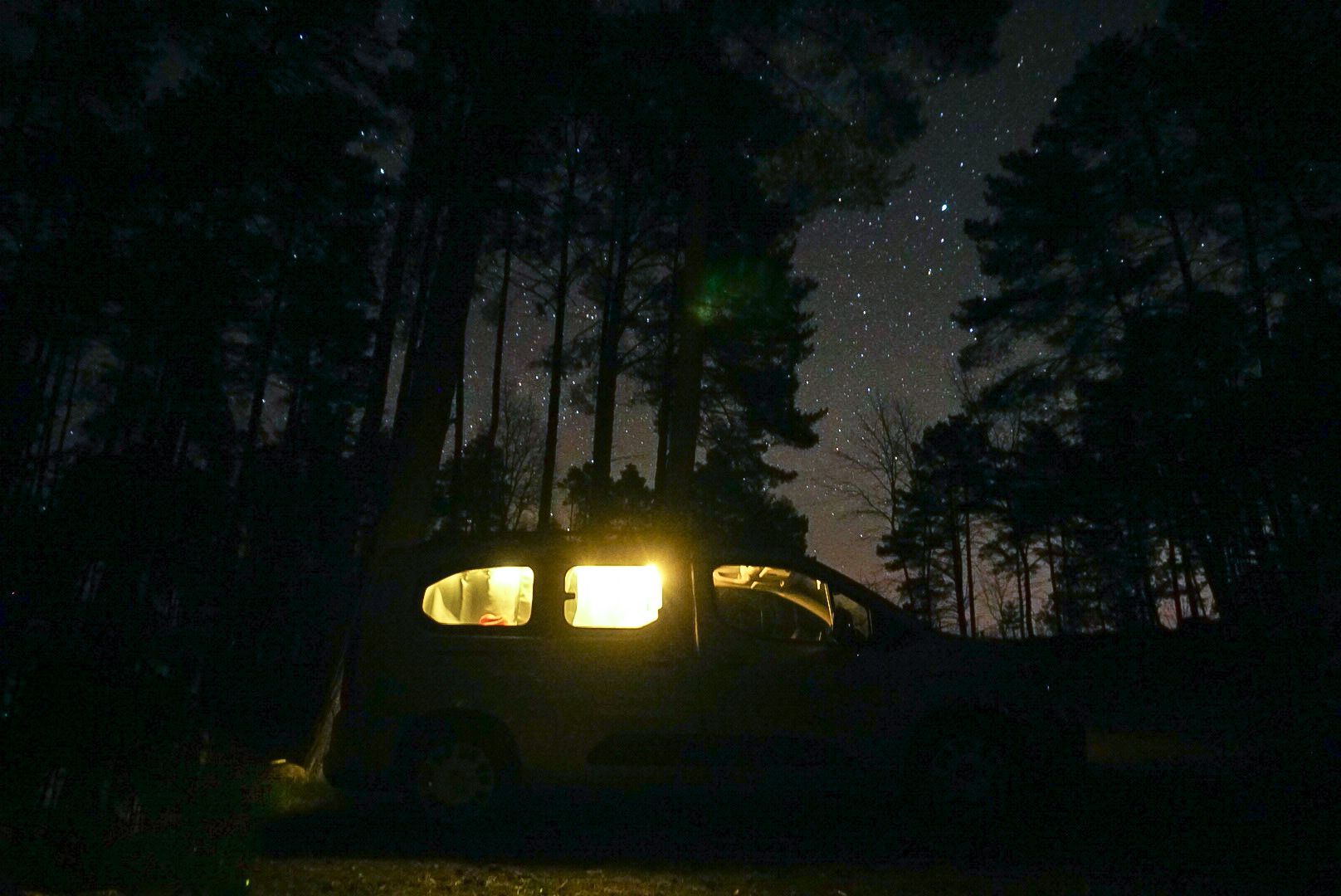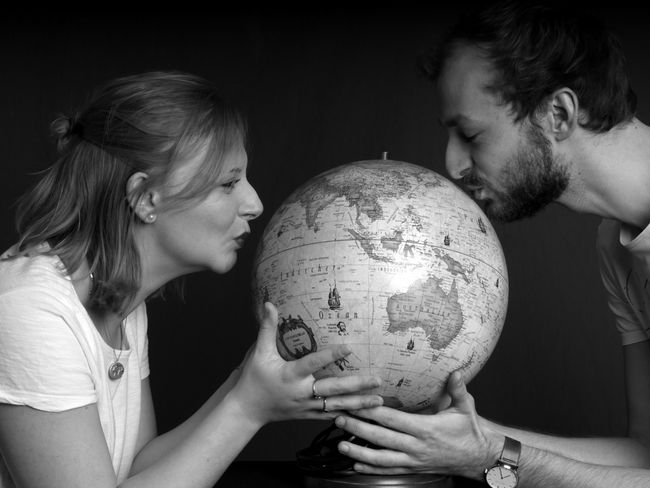Sugar sweet Sucre
已发表: 07.12.2022
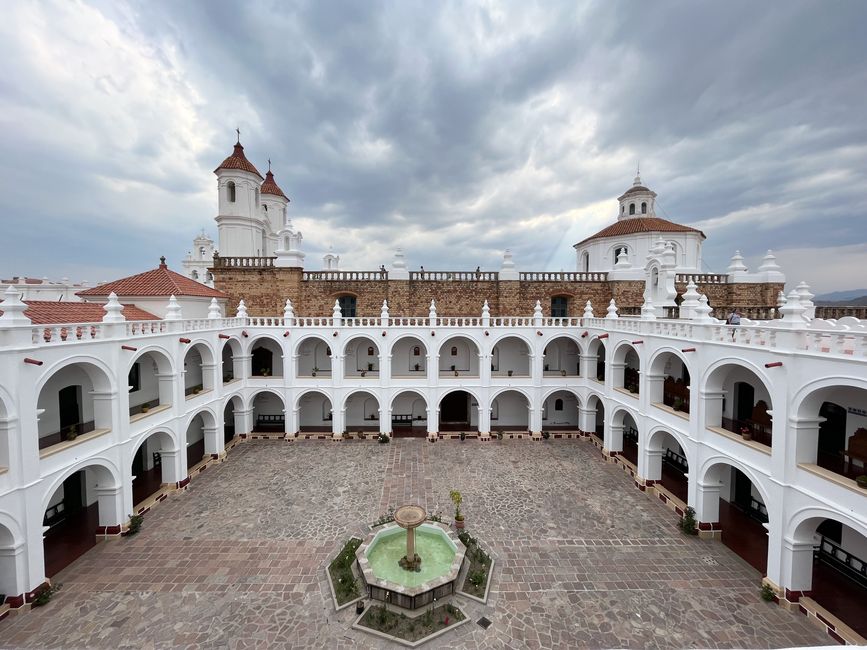
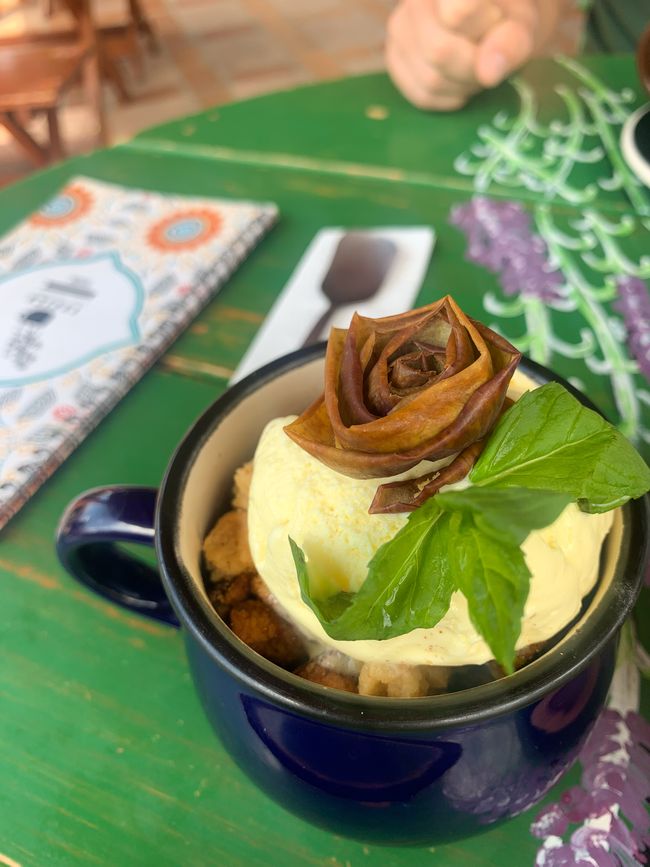
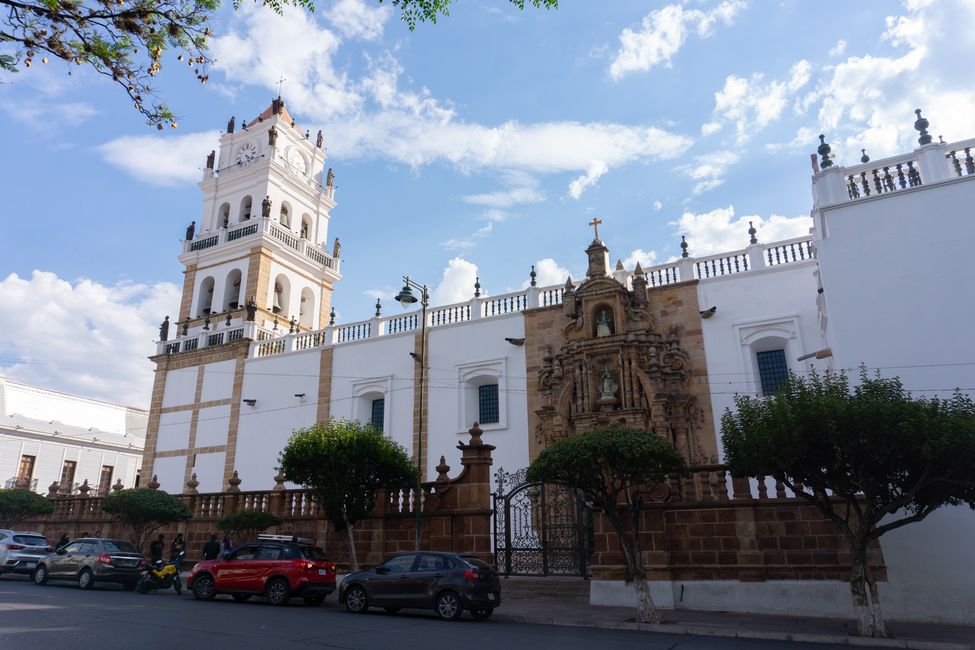
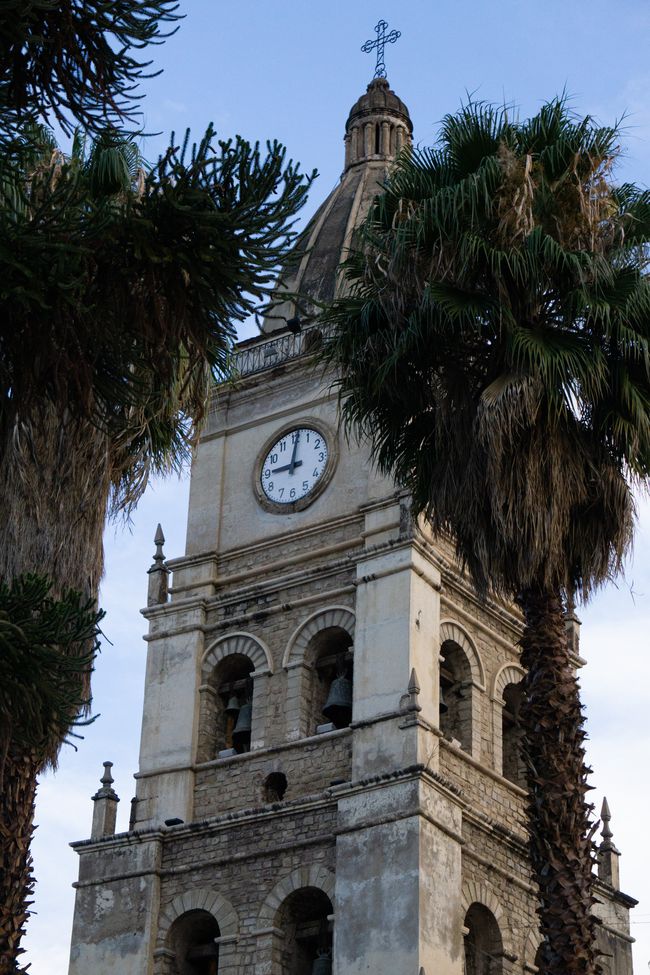
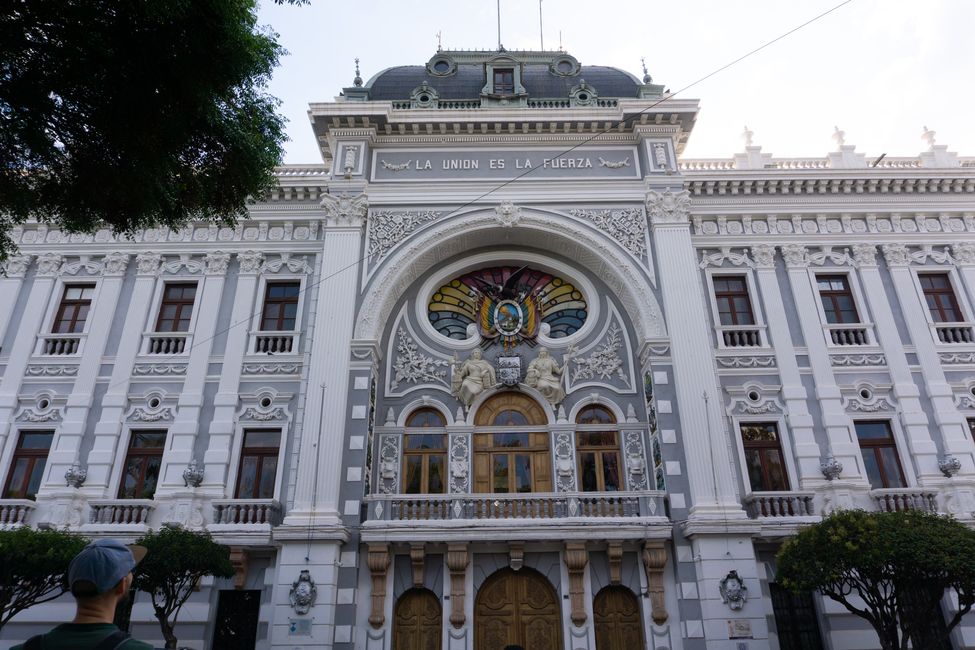
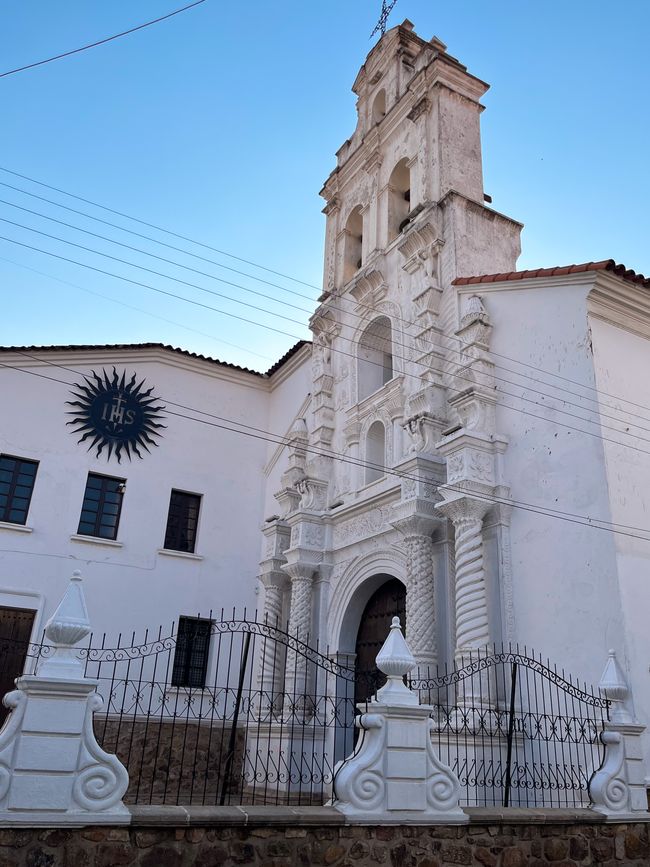
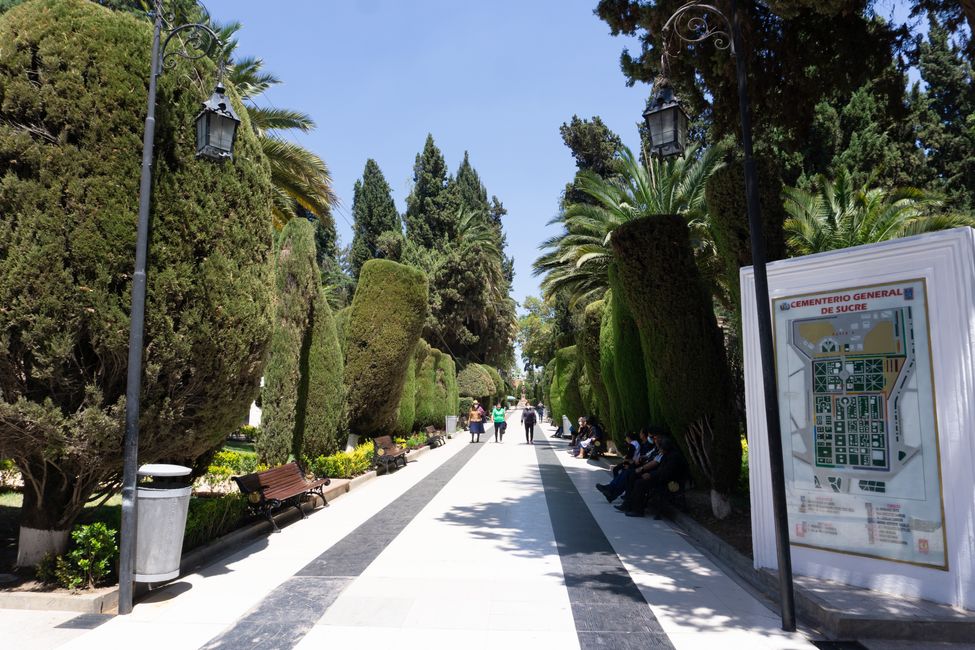
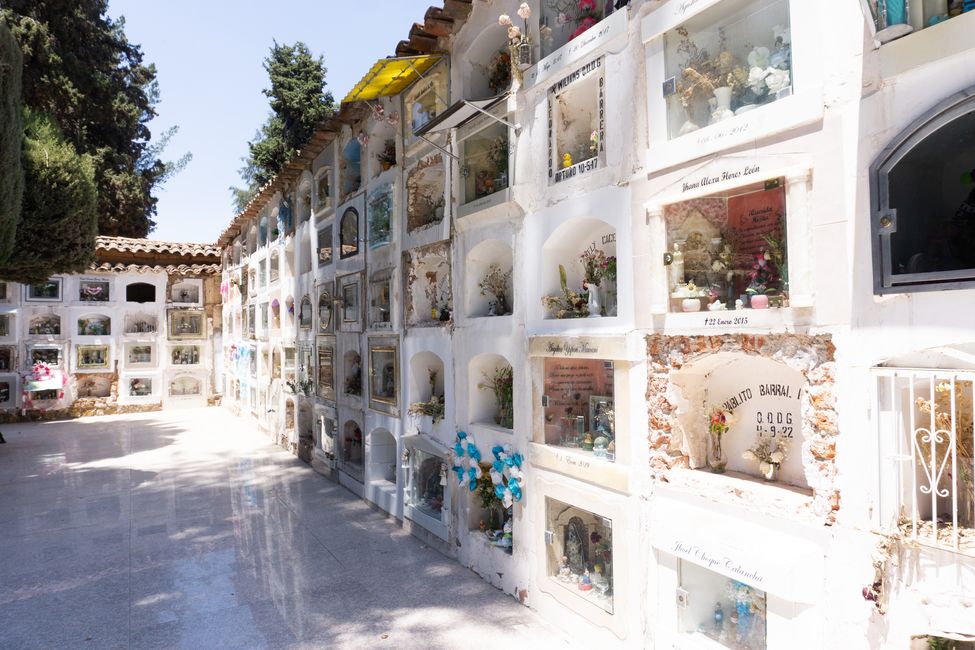
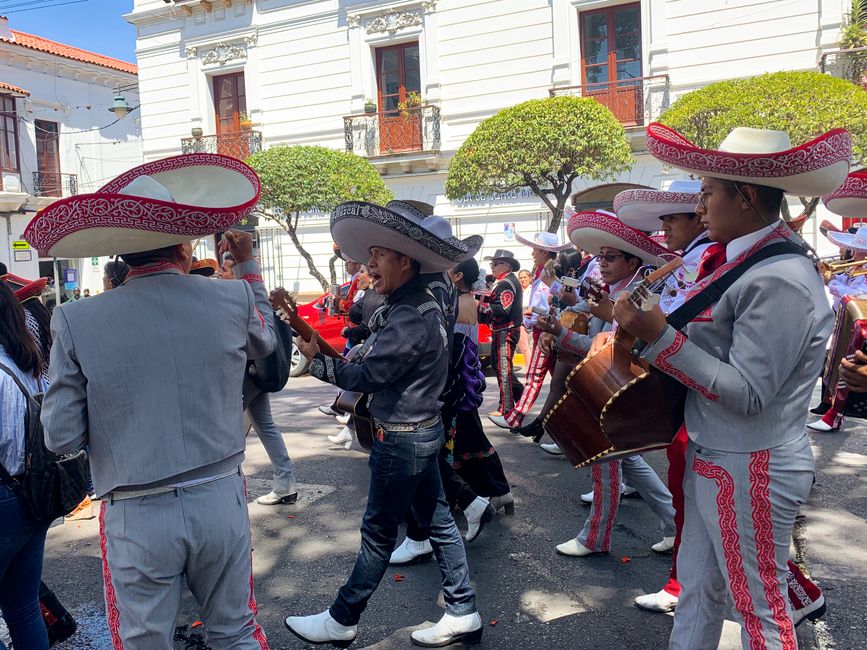
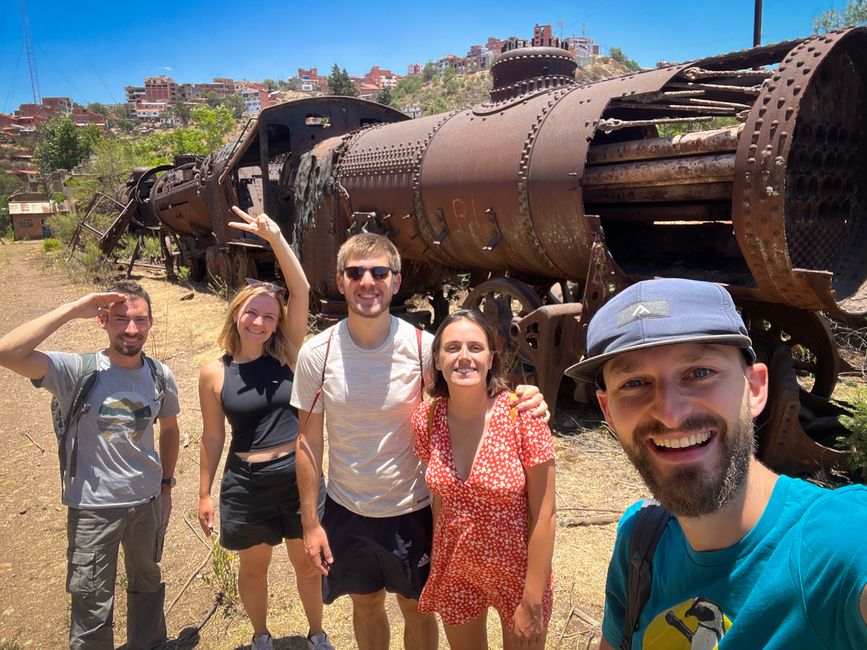
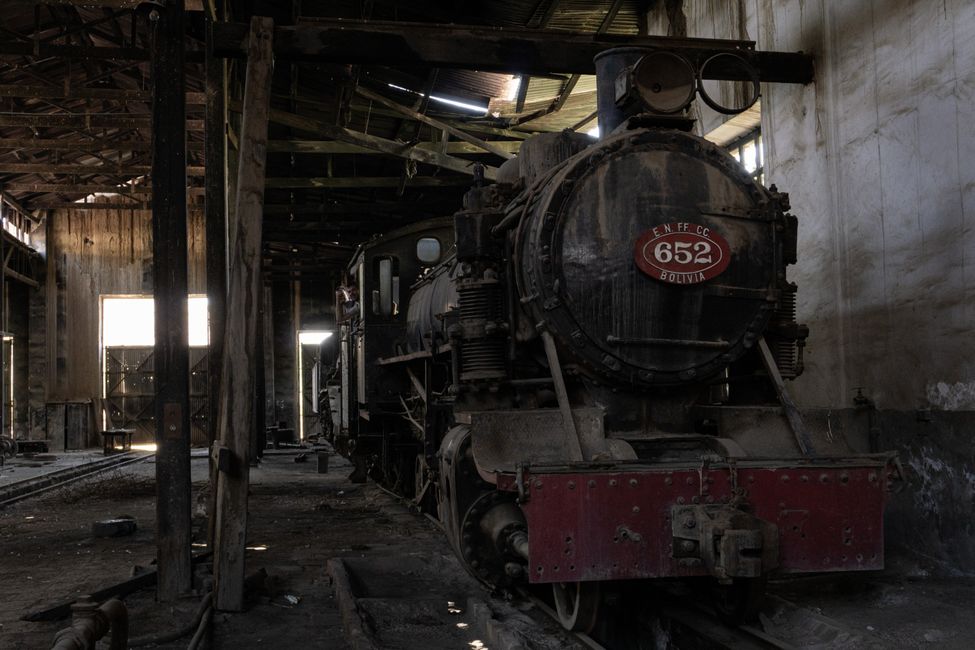
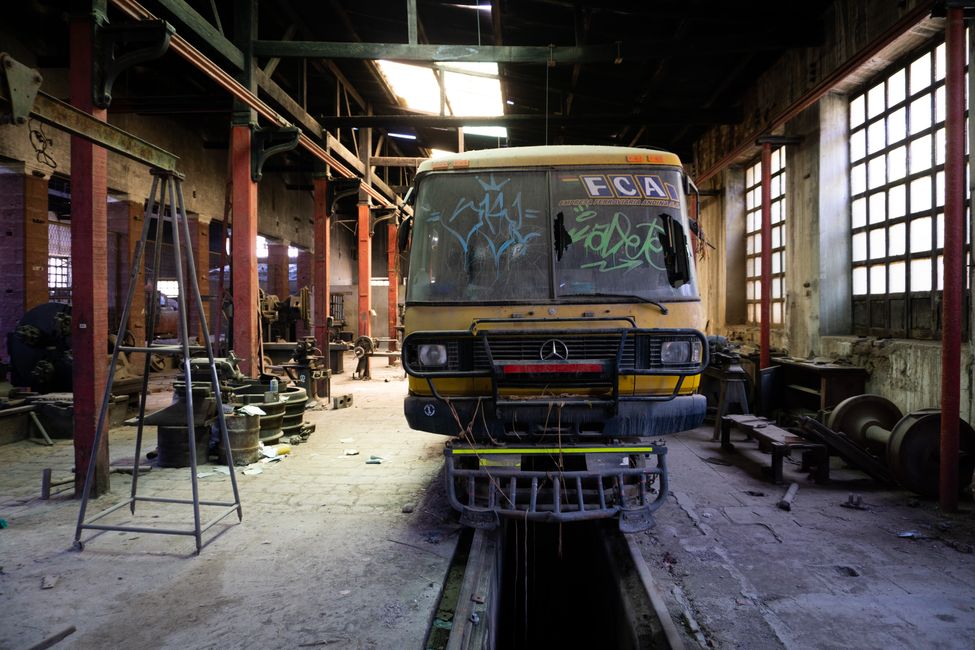
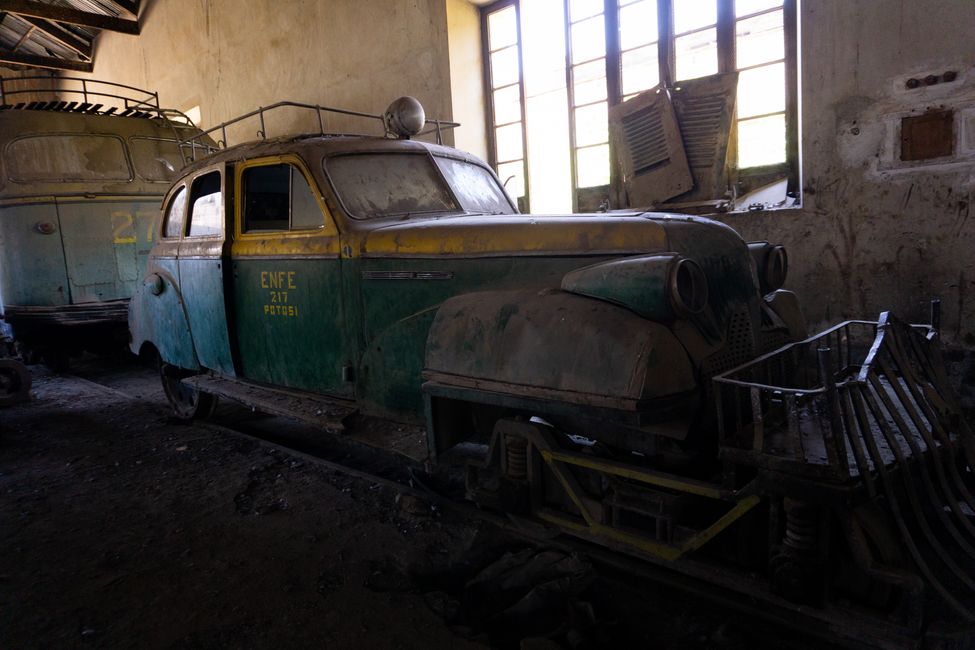
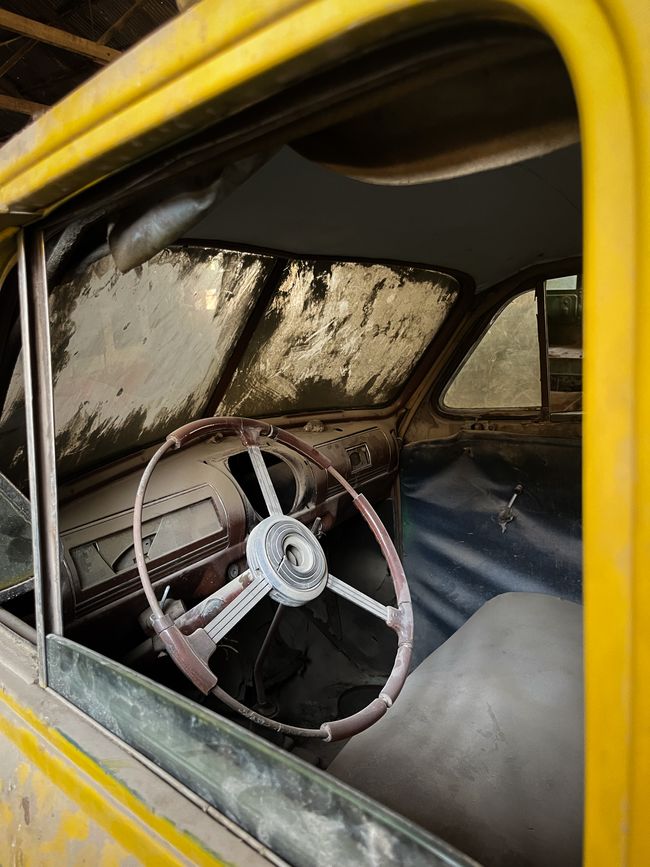
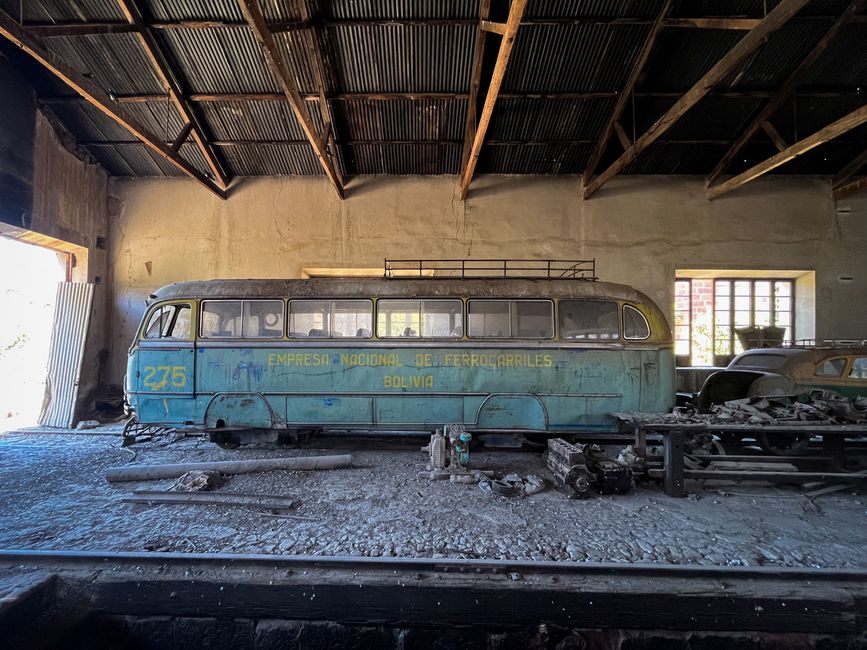
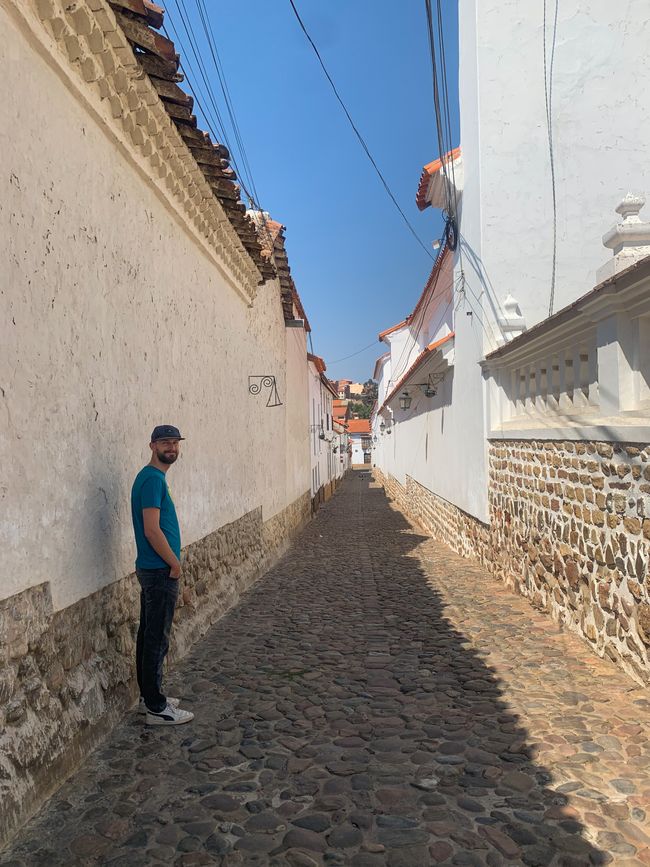
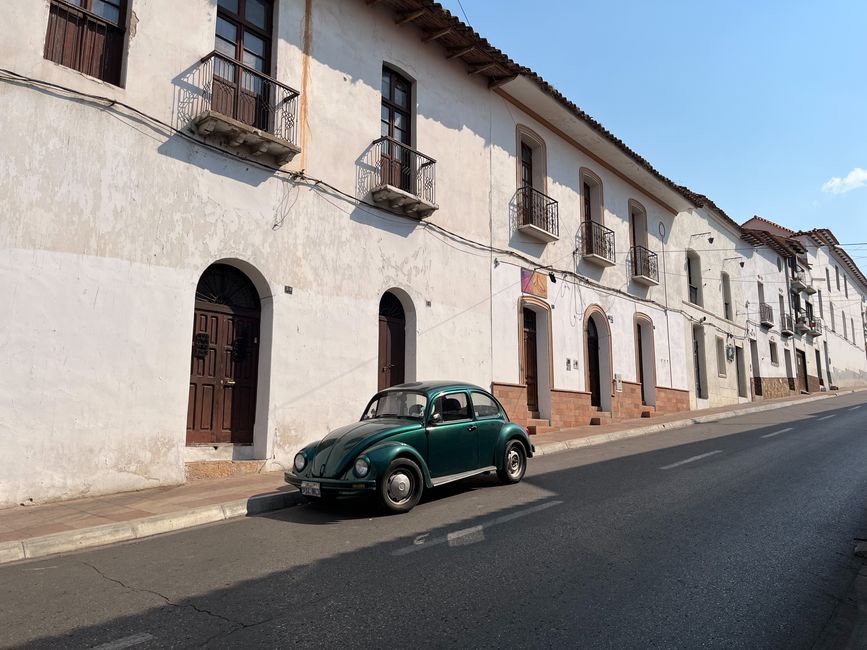
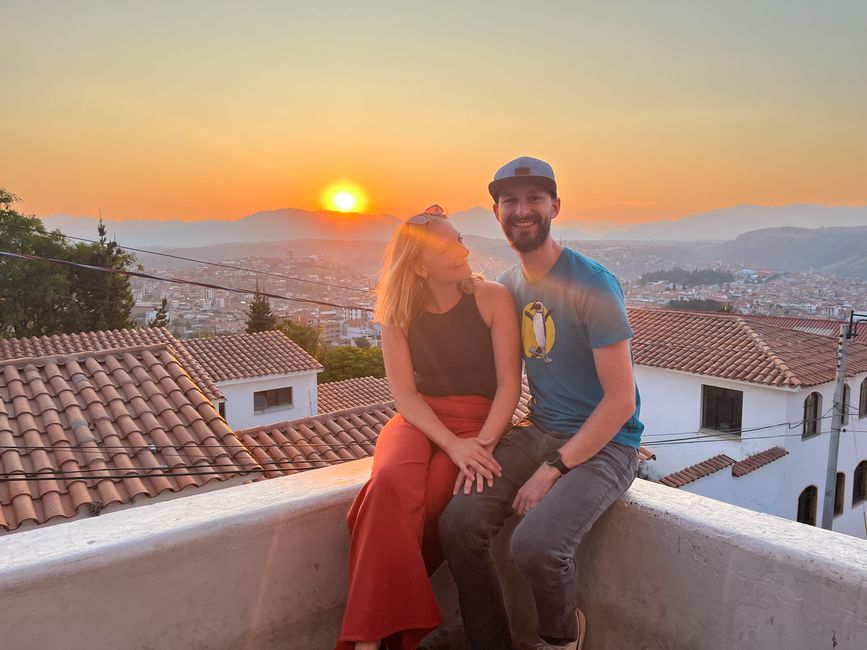
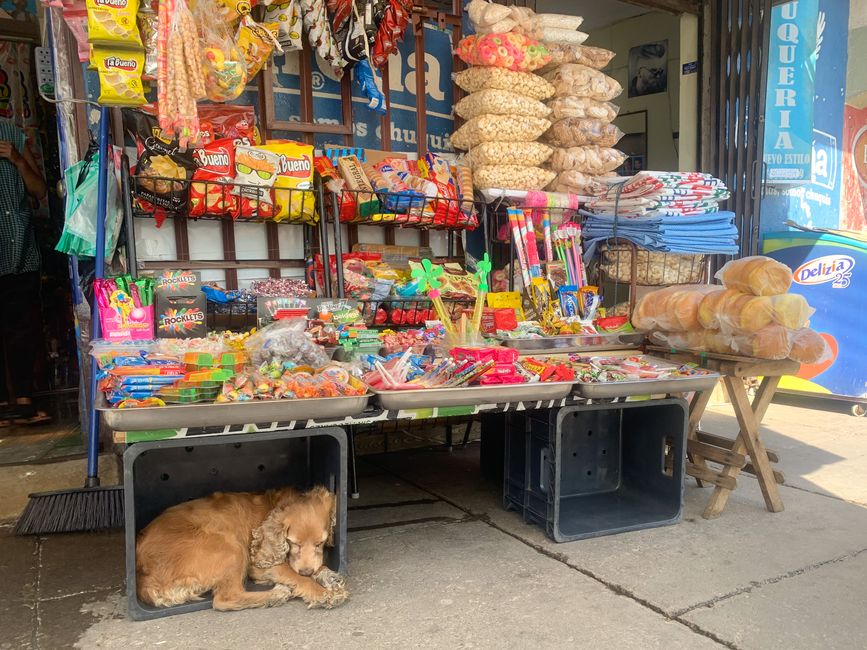
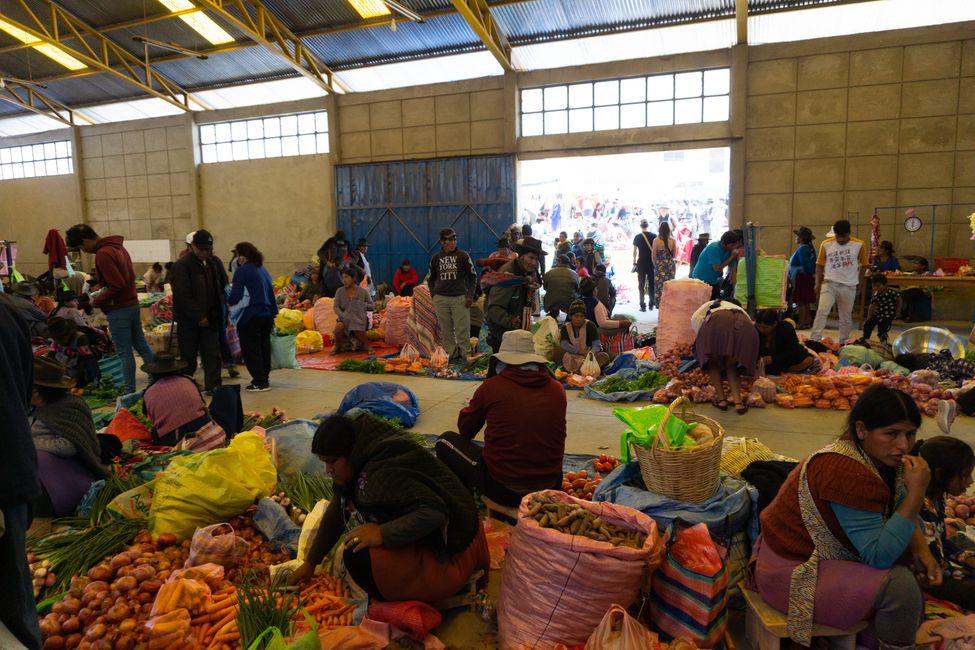
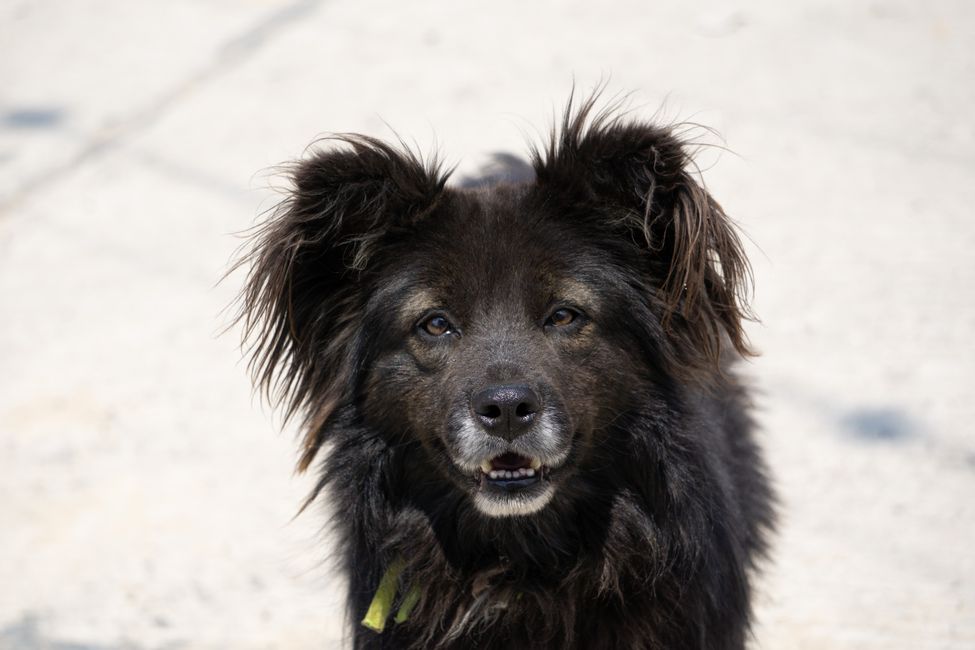
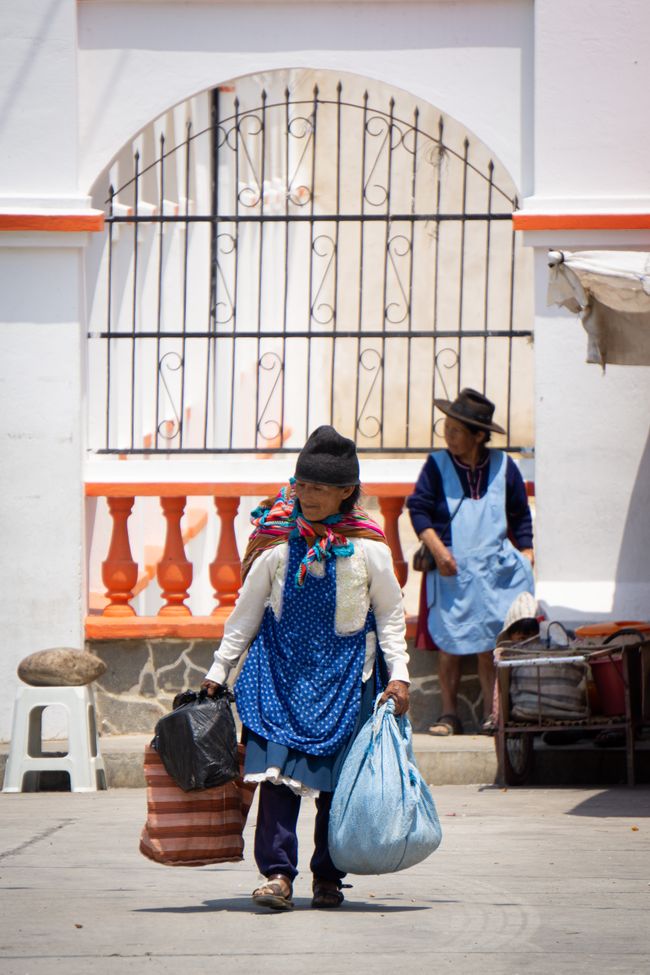
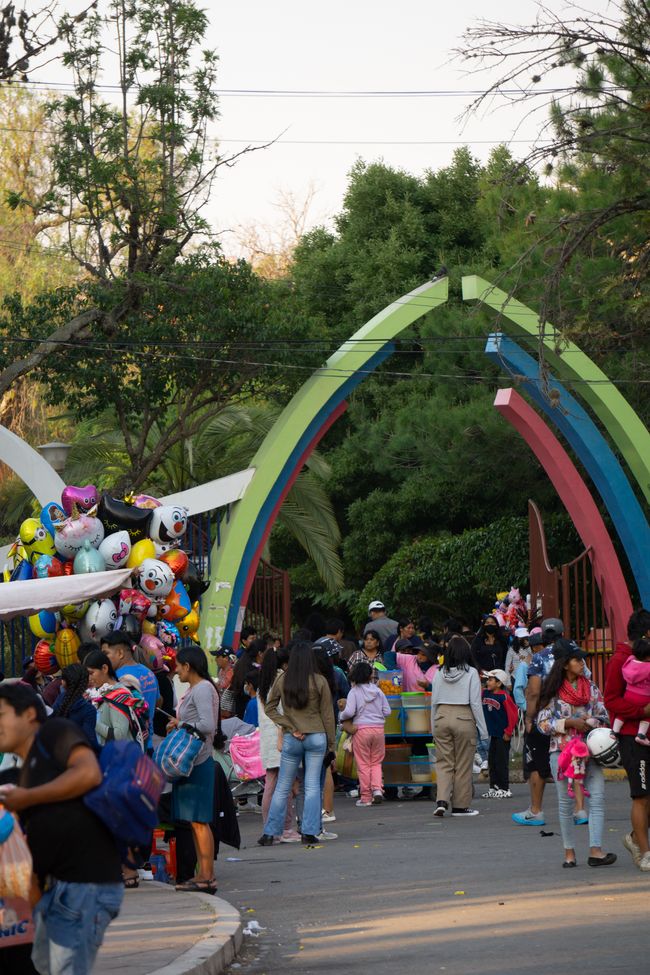
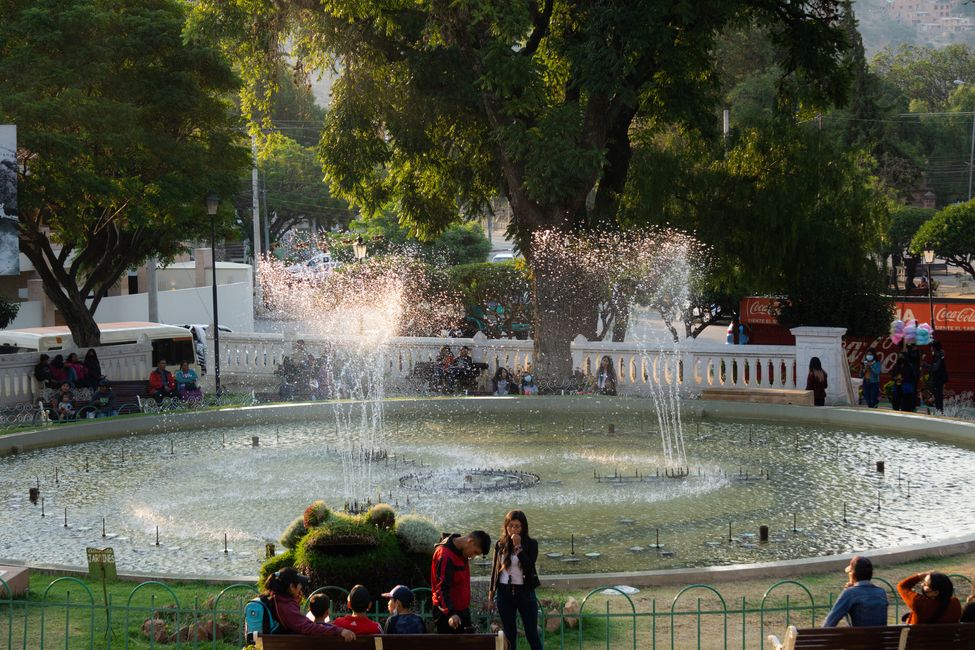
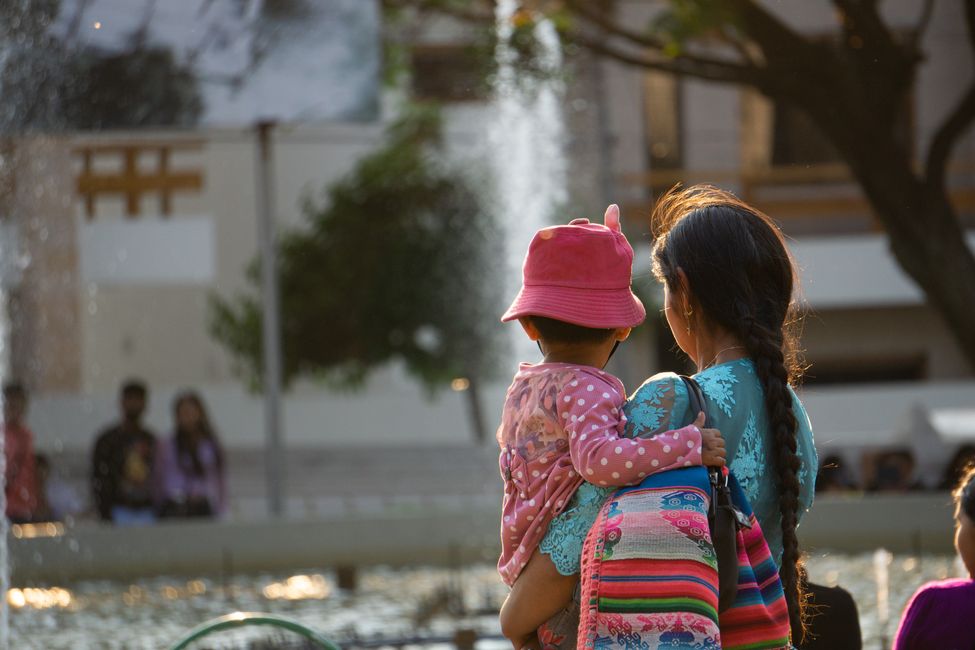
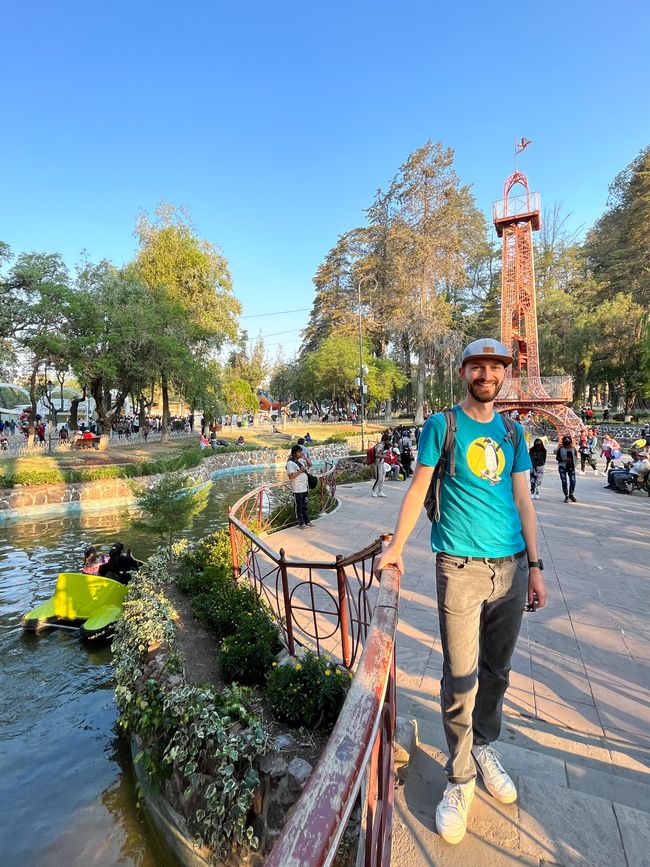
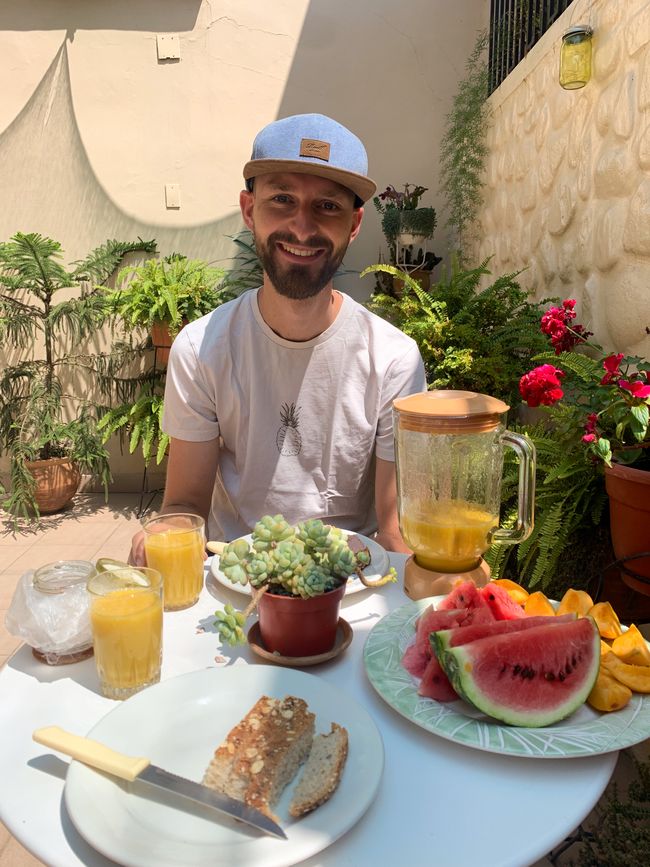
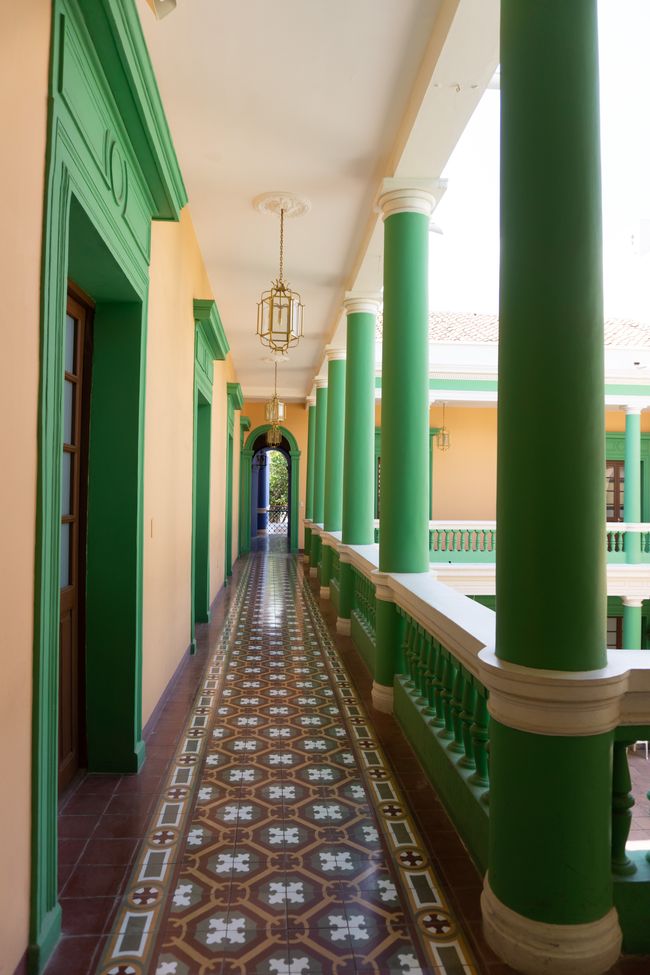
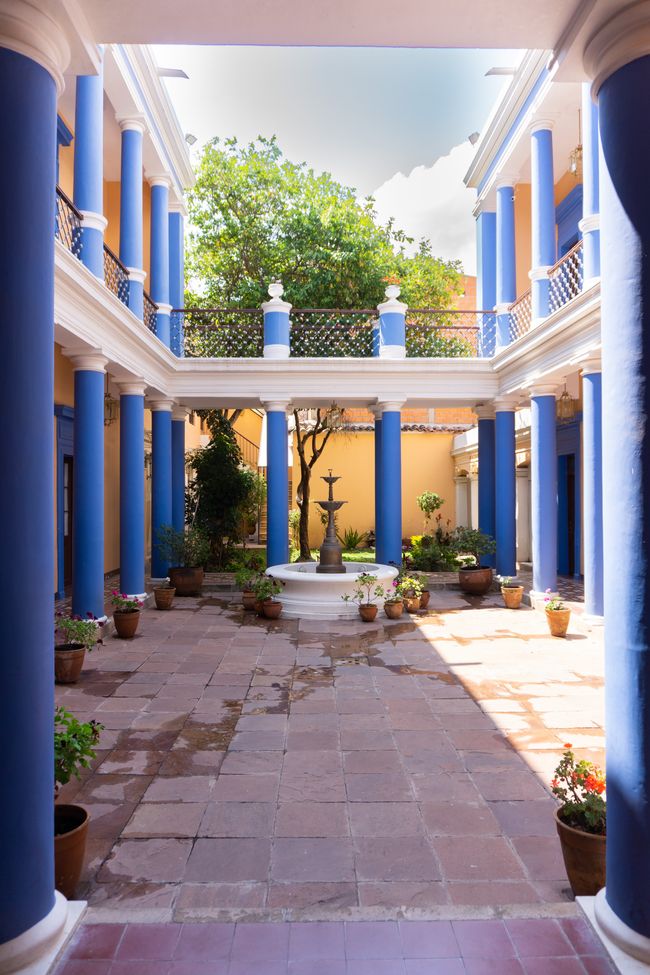
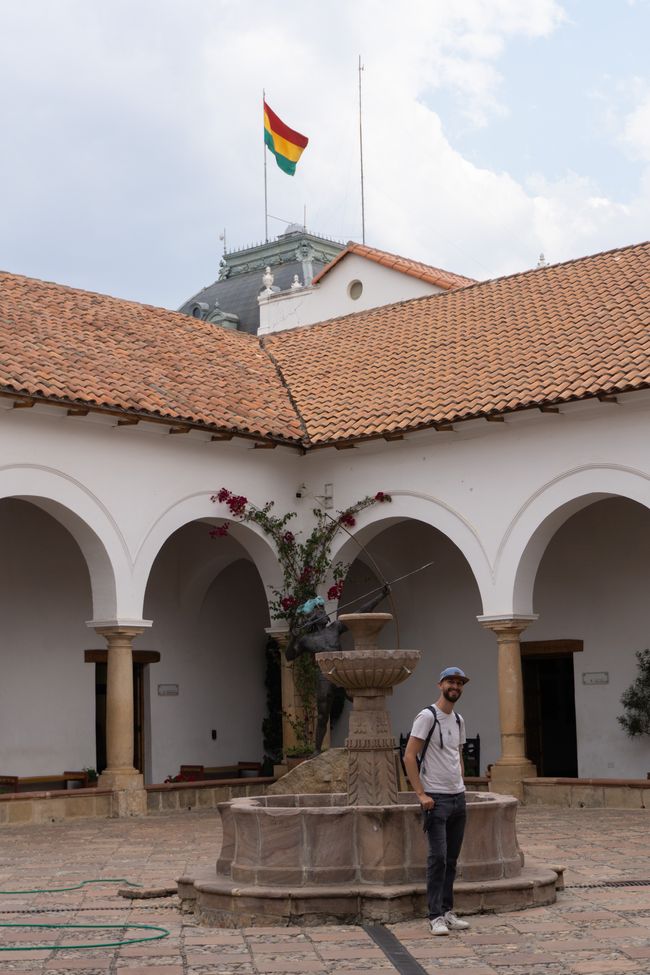
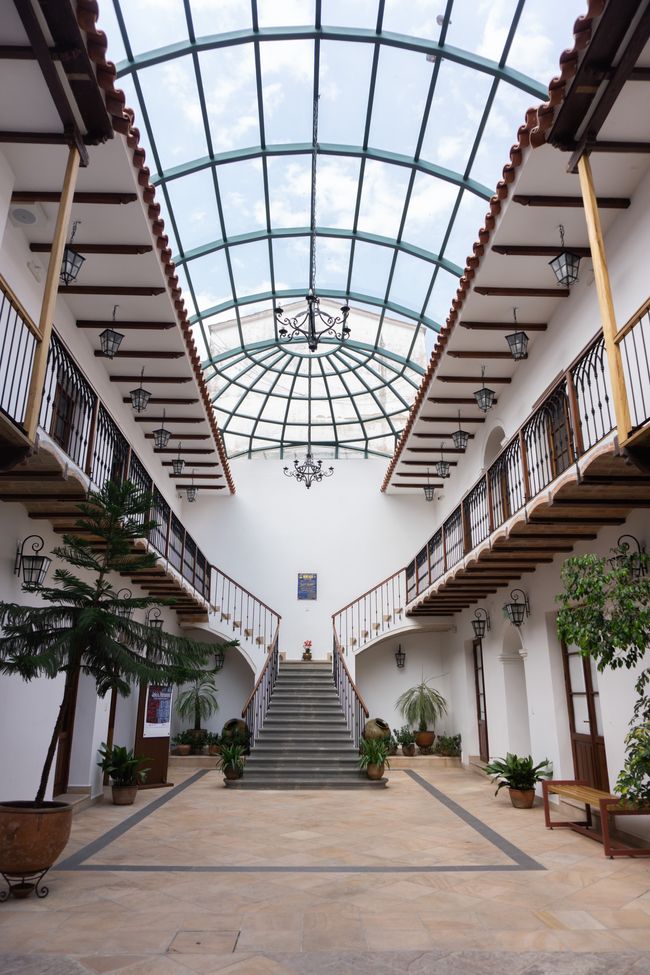
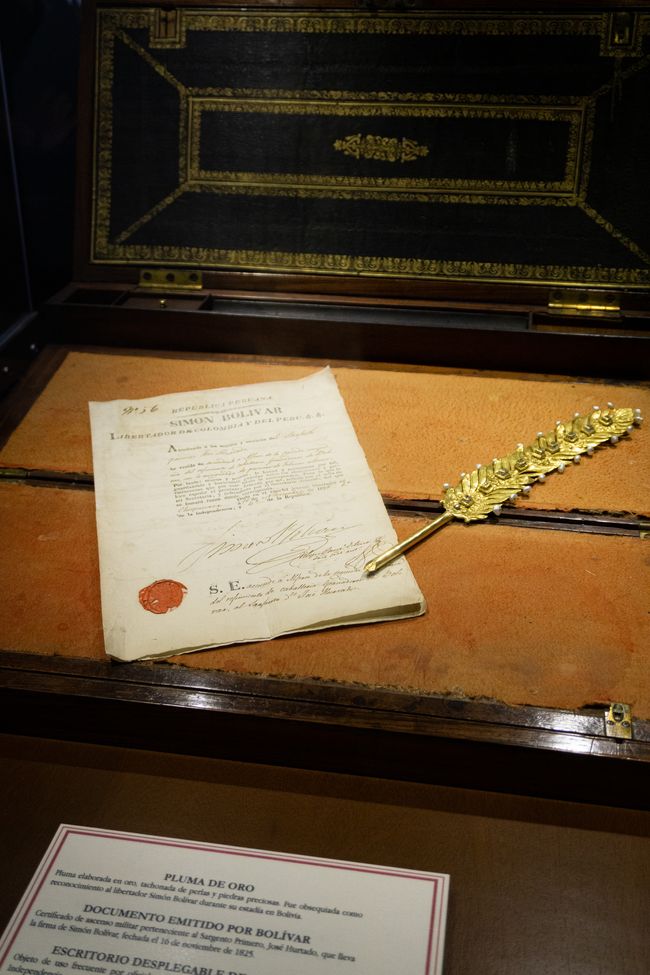
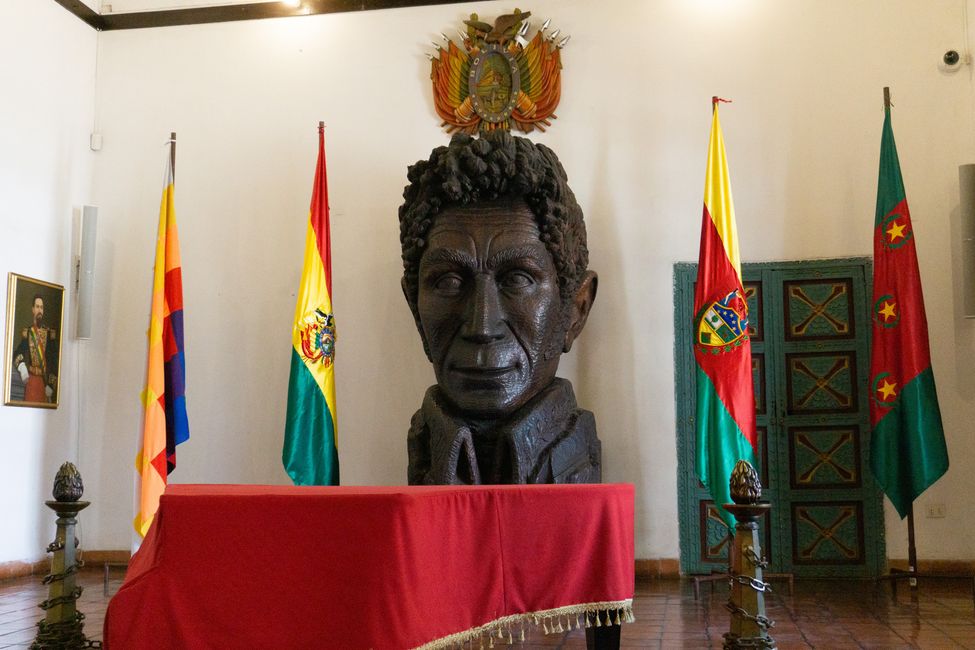
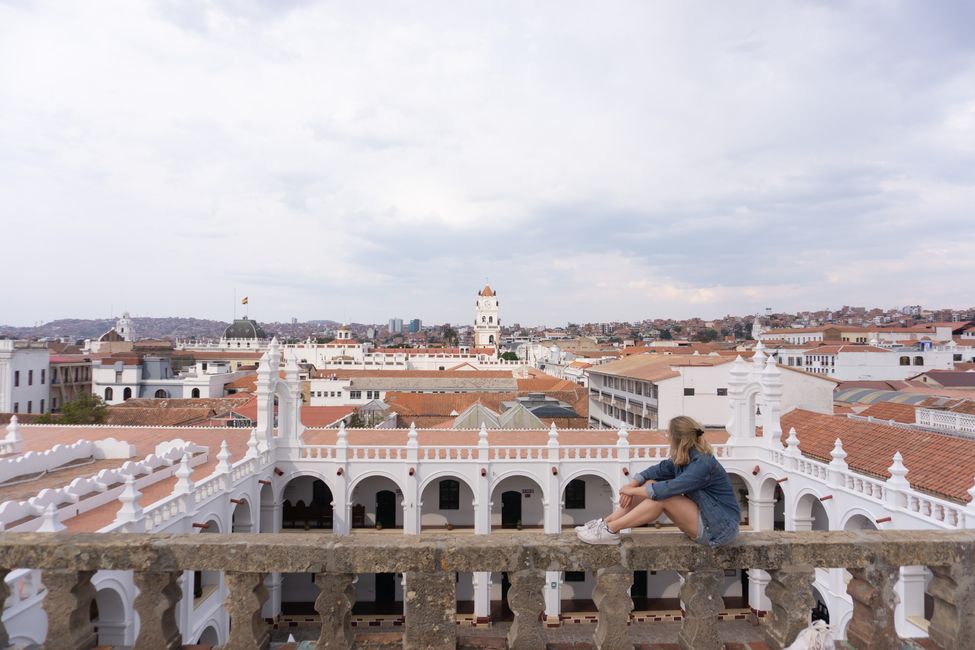
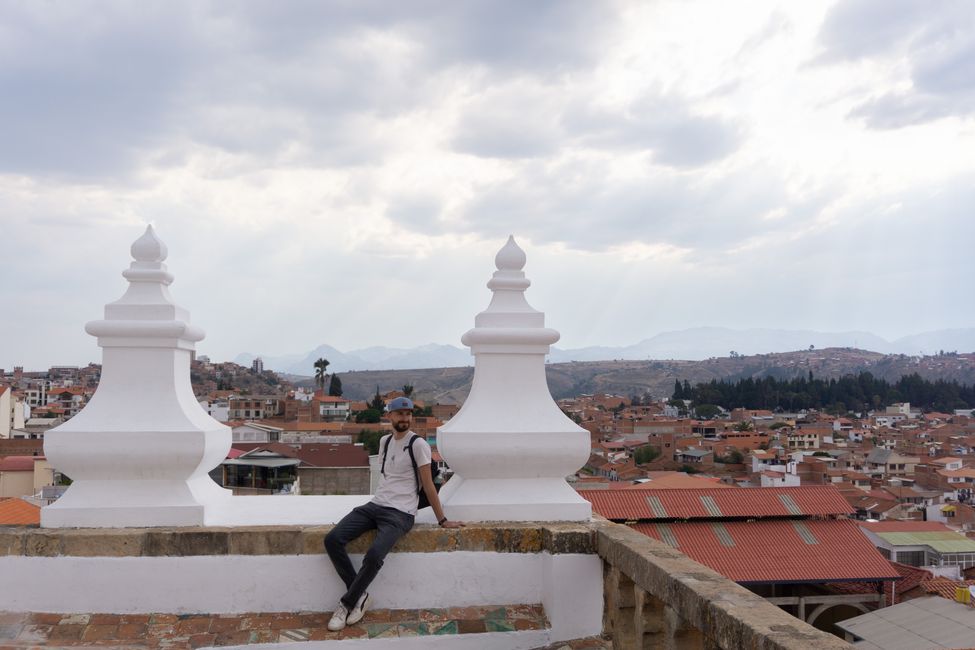
订阅时事通讯
Early in the morning at 5 o'clock we arrive in Sucre with the actually quite comfortable night bus. Since we can only check into our hotel at 7 o'clock, we wait with Julien and Kevin at the bus terminal, who have the same problem, until we get into a taxi and drive to our hotel. Luckily, we can go straight to our room and sleep for a while, because sleep on the night bus is never very refreshing, no matter how comfortable it may be.
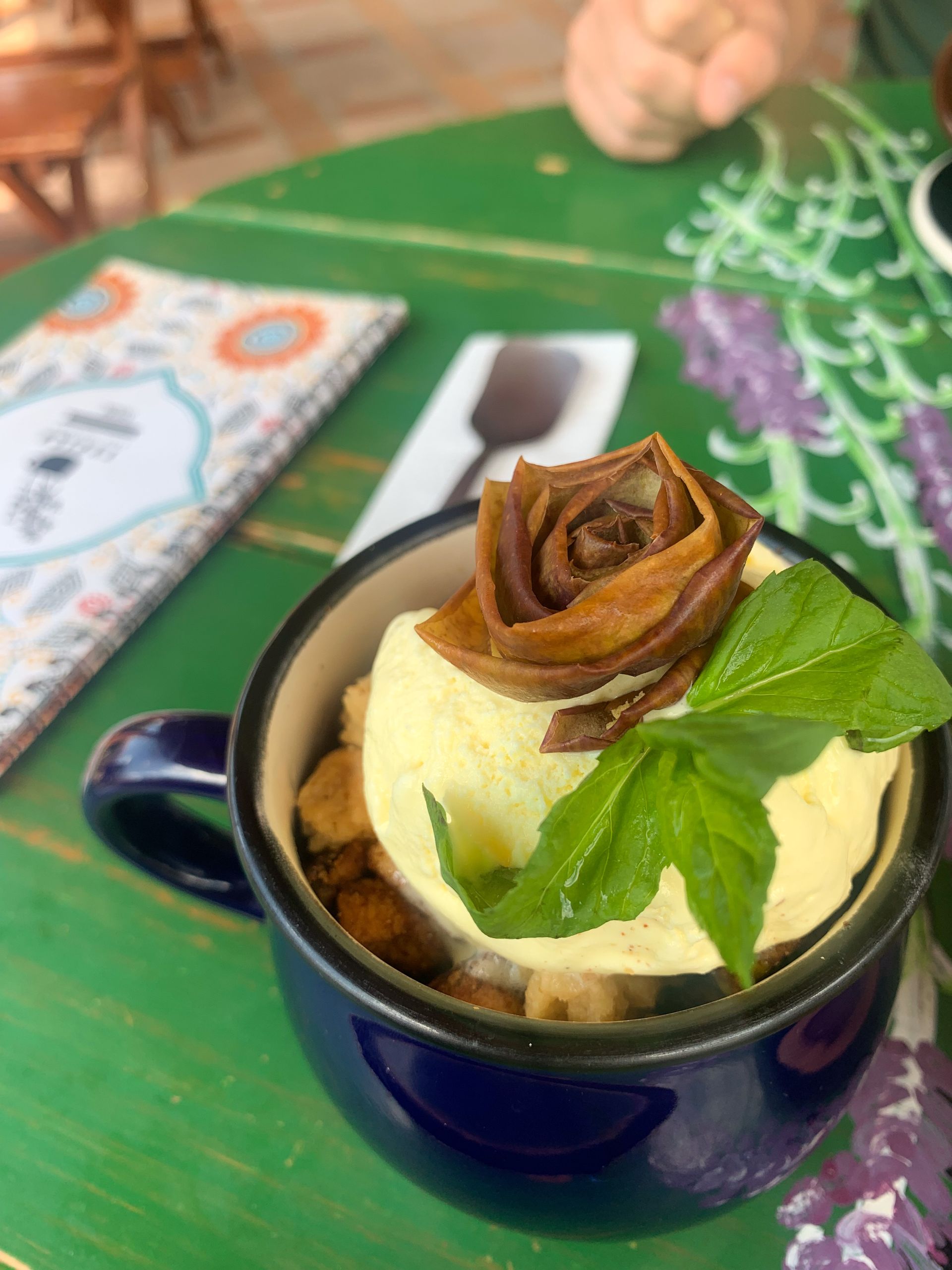
At around 12 o'clock we finally get out of bed and go to a sweet café with a small garden in the courtyard for a late breakfast. Unfortunately, half of our order was forgotten, so it takes quite a while. We can't do much more on this day except stroll through the city and get a first impression. Actually, we like the rather small capital of Bolivia with its 360,000 inhabitants very much right away! The white houses, beautiful churches, nice restaurants and cafés, and the relatively clean streets for South American standards. Everything seems very relaxed and you can also hear comparatively few honking cars in the small alleys. On Sundays, some streets around the Plaza de Armas are even closed to cars.
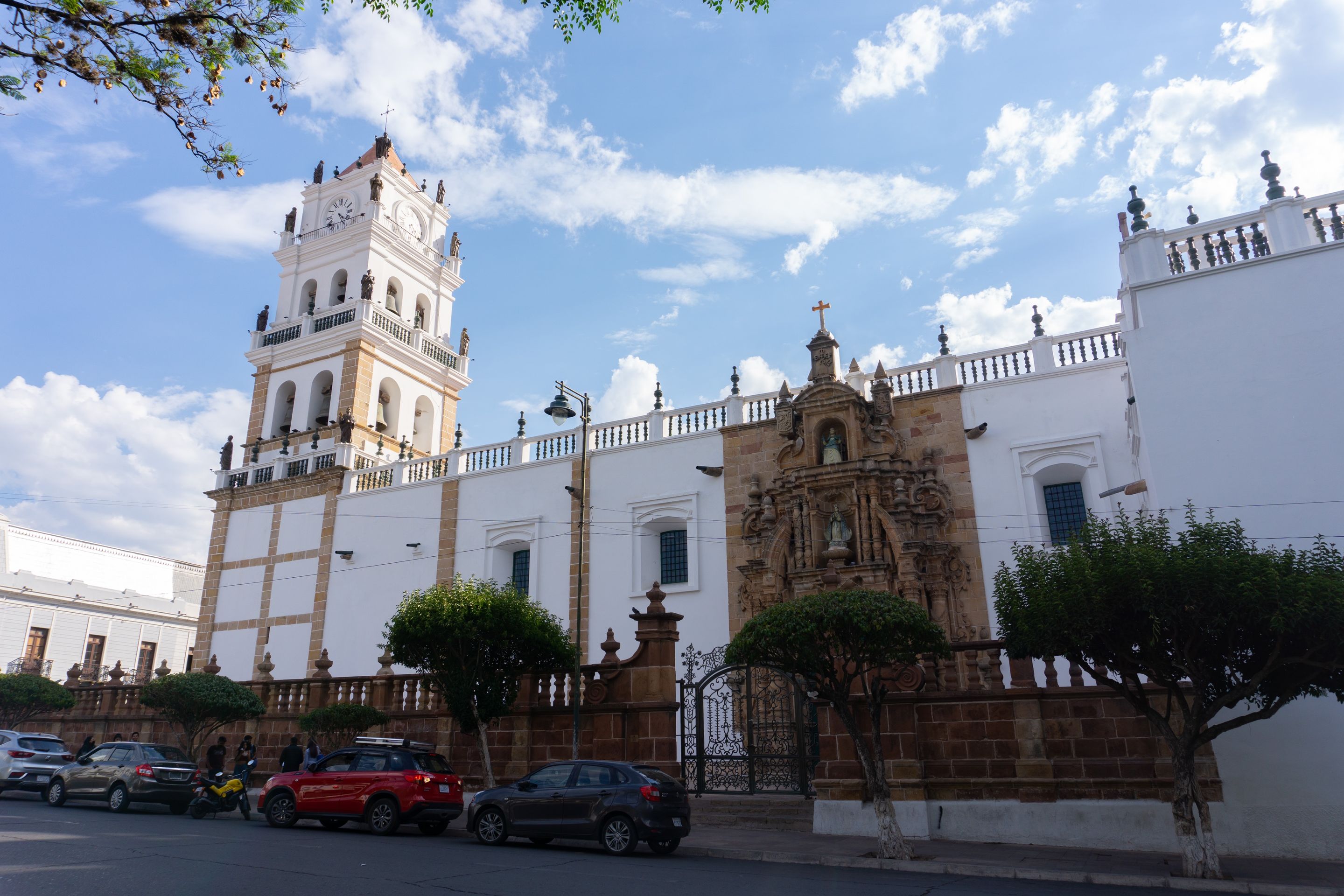
The evening program offers a delicious dinner with the French crew consisting of Julien, Kevin, Cyril, and Flo, followed by karaoke for us.
For the next day, we agreed to meet at 10 o'clock to go to an old, abandoned train station on the outskirts of Sucre. We got the insider tip from another traveler and actually managed to convince the security guard with our charm to let us onto the premises for half an hour. We have never seen such a well-preserved "Lost Place" before... everything is exactly as it was left about 30 years ago. Old trains and cars on tracks that were parked there for repairs are still waiting to be put back into operation, and one feels transported back in time.
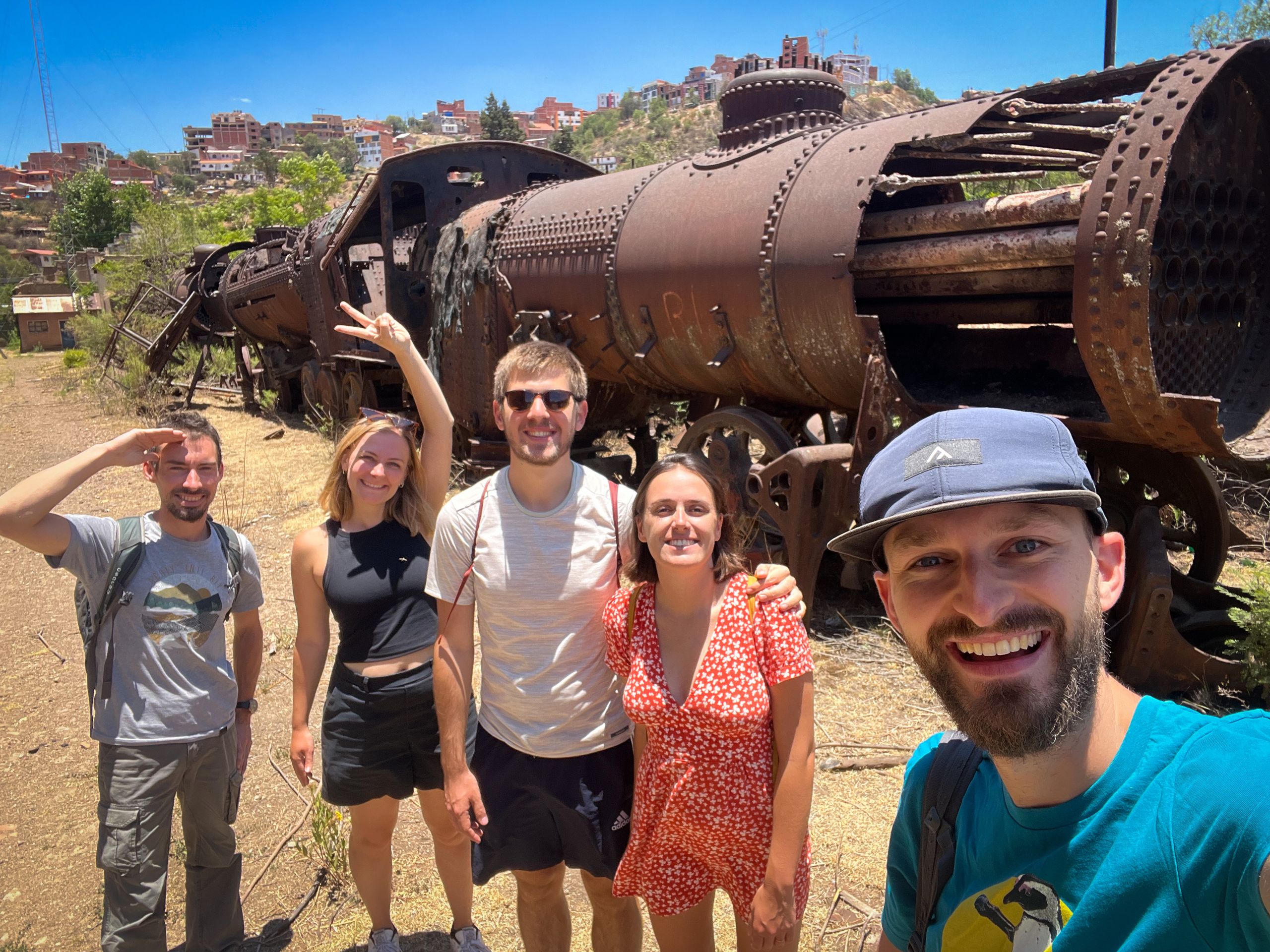
We also pass by the cemetery of Sucre, which looks more like a large park. In addition to the large family tombs, there are also long walls with small graves, all of which are decorated quite personally with pictures, flowers, and loving objects.

Back in the city center, we enjoy the sunset from Mirador Recoleta, which offers a beautiful view of the city and the surrounding mountains, before treating ourselves to a delicious 6-course menu including drink pairing for 20€ per person (Tripadvisor Rank 1). Can do that once... 😉
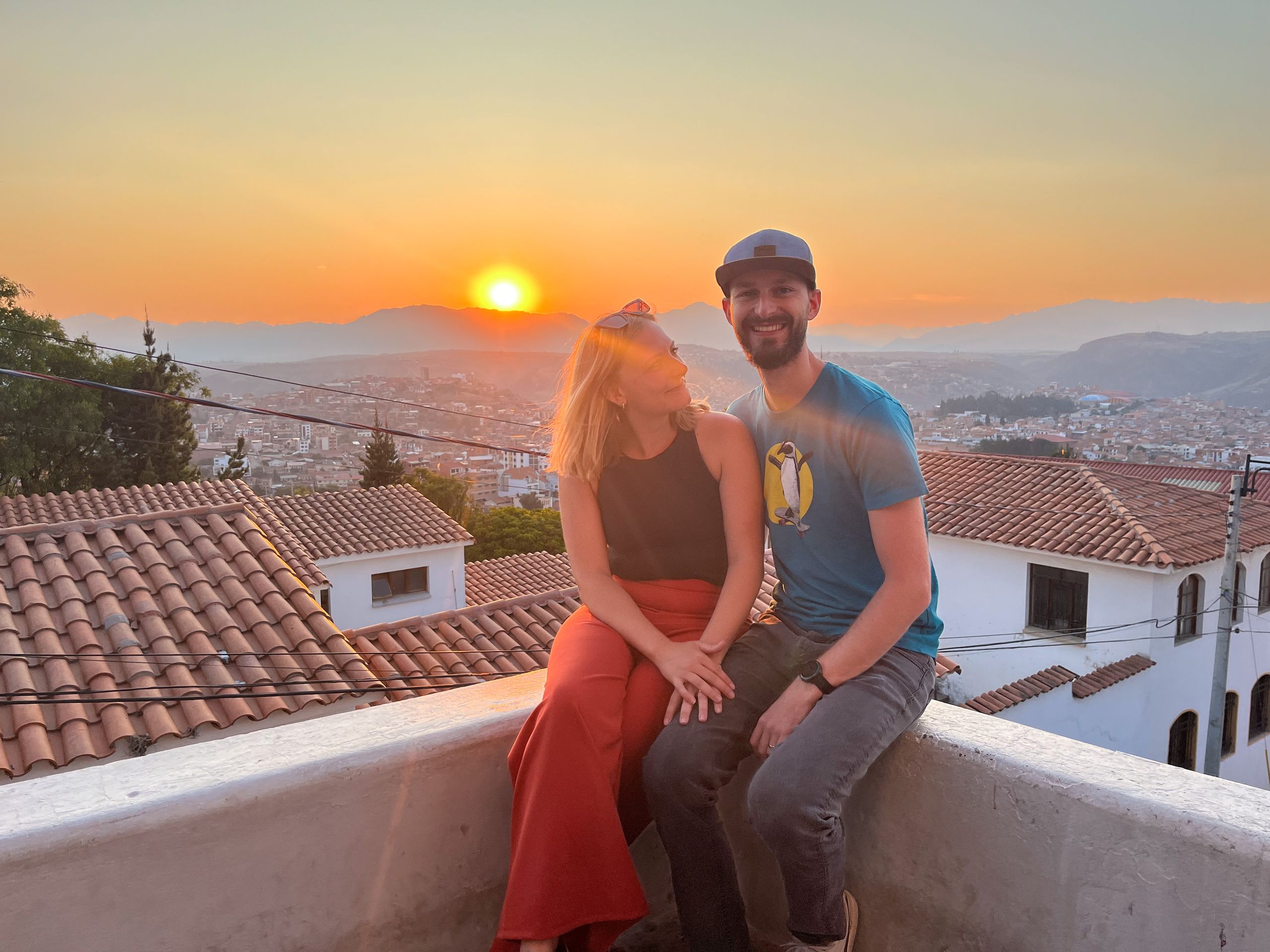
The next morning, we take a collectivo to Tarabuco, a Sunday market that is about 1.5 hours away. Actually, Kristine and Mads from Denmark, whom we already met in Copacabana, are also in the same vehicle. The small town of Tarabuco has turned into a single marketplace today, and there are different things in every street; from fruit to clothing to technology, everything is available. With the fresh products from the market, which cost almost nothing, we make pasta with fresh vegetables in the evening. Maybe a little spicy because we underestimated the chili, but still delicious and finally something without meat, rice, or fries, which the South American cuisine usually brings to the table every day.

Before that, however, we stroll through Parque Simon Bolivar in Sucre. Since the three-month vacation in Bolivia begins this weekend, there is a lot of celebration going on with bouncy castles, table football, and food stalls. In the middle of the park, there is also a small version of the Eiffel Tower, which actually comes from the same builder.

In this beautiful city of Sucre, we decide to extend our stay for another day and spend the time in museums. One of them is the small and free Ethnography Museum. In addition to typical Bolivian garments, there are works of art by children and young adults to see, as well as other traditions in the course of time.

We then continue to Casa de la Libertad, where Bolivia's independence was sealed by important men like Simon Bolivar, General Sucre, and so on. During a guided tour, we learn a bit more about the countless presidents who have led the country so far, and about the numerous wars that have made Bolivia increasingly smaller. Unfortunately, the country no longer has access to the sea today, as it lost a region to Chile in the war. The museum also provides information about the struggles of the indigenous people against the Spanish occupiers, with many strong women at the forefront.
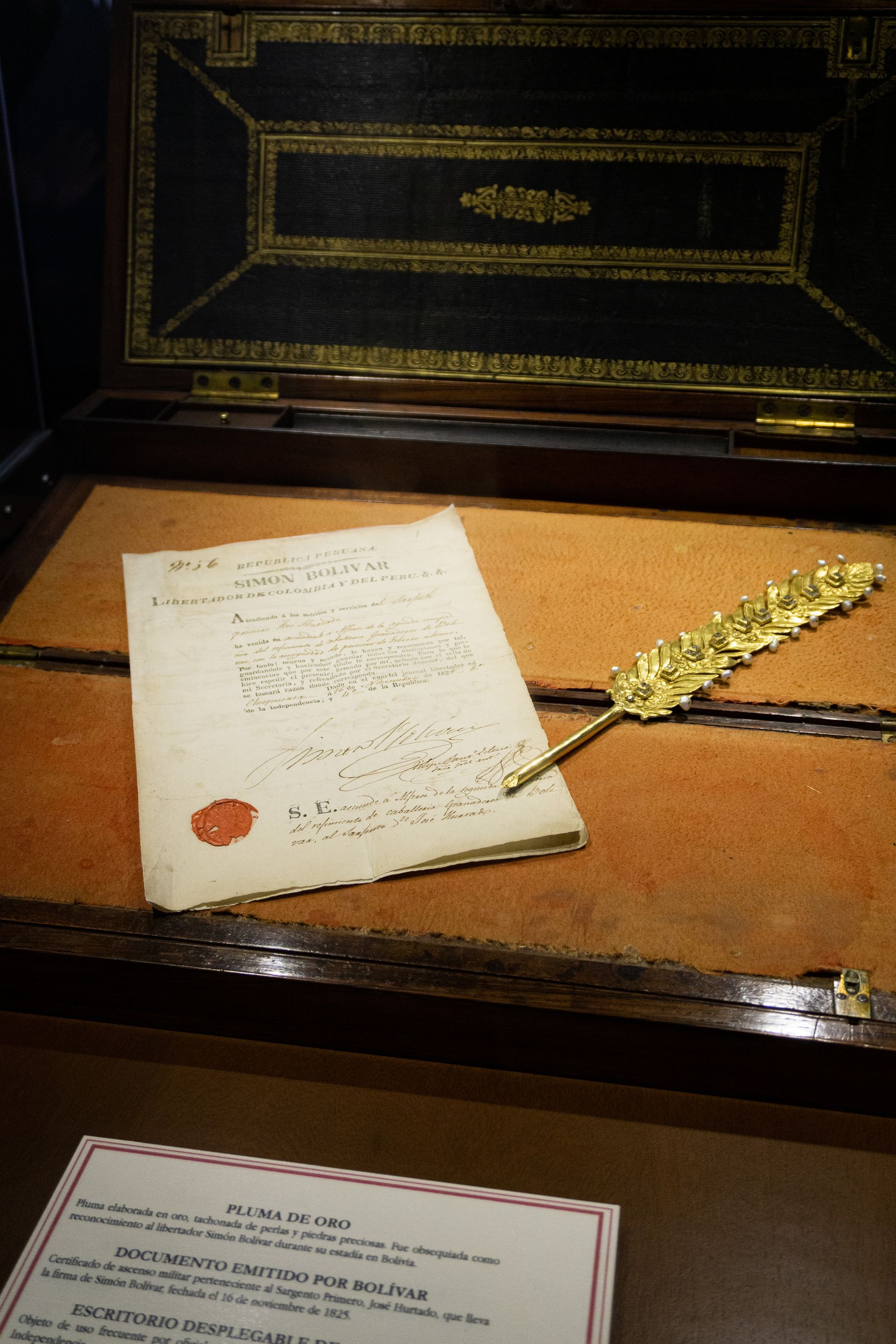
We end our cultural trip today at Iglesia San Felipe, which also includes a school. You can explore the beautiful courtyard and the church and then go up a staircase to get a fantastic view of the "White City".
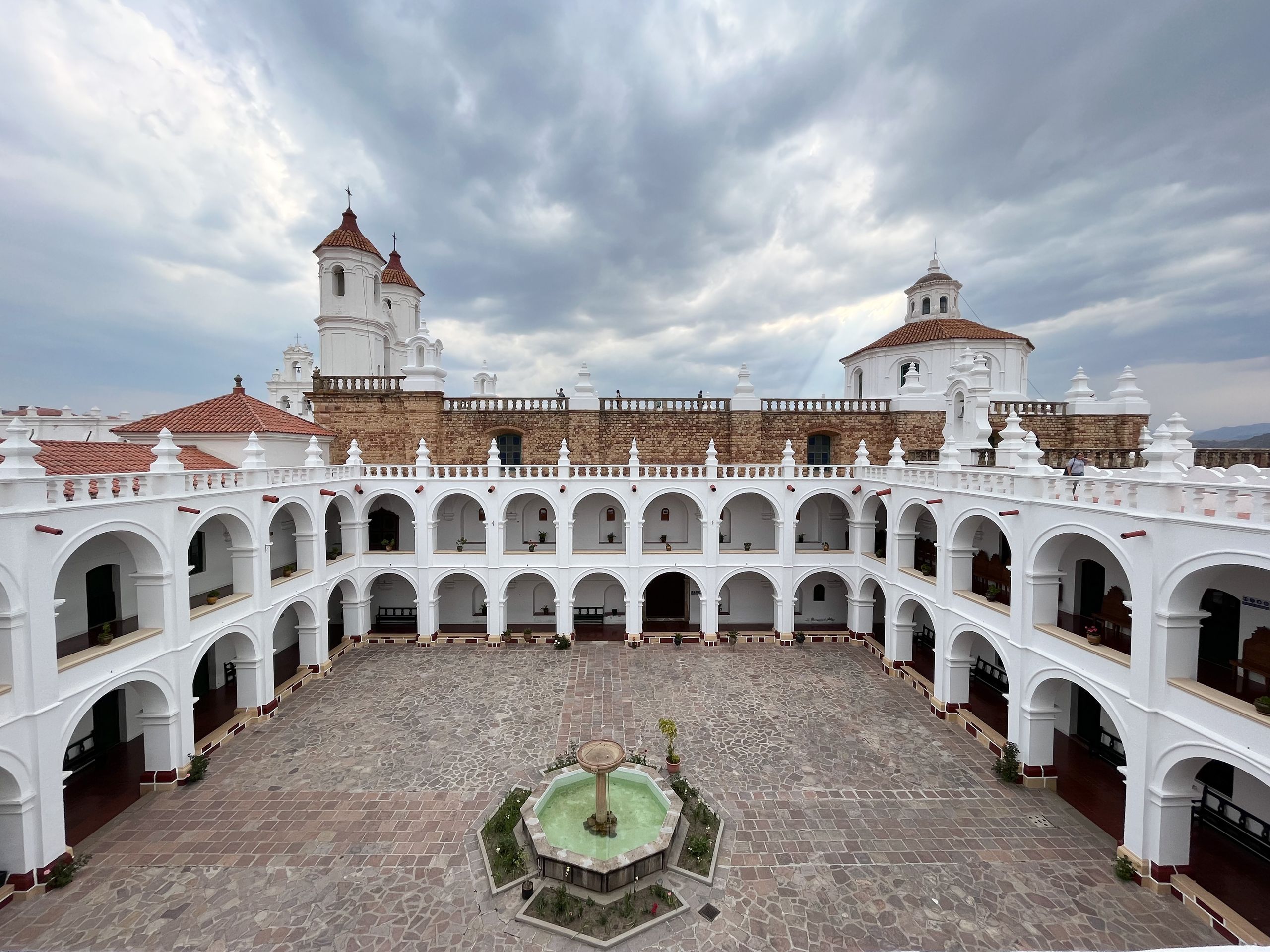
It's starting to rain slowly and we save ourselves in the beautiful café from the first day, before we pack our things and take the night bus to Tarija.
订阅时事通讯
回答
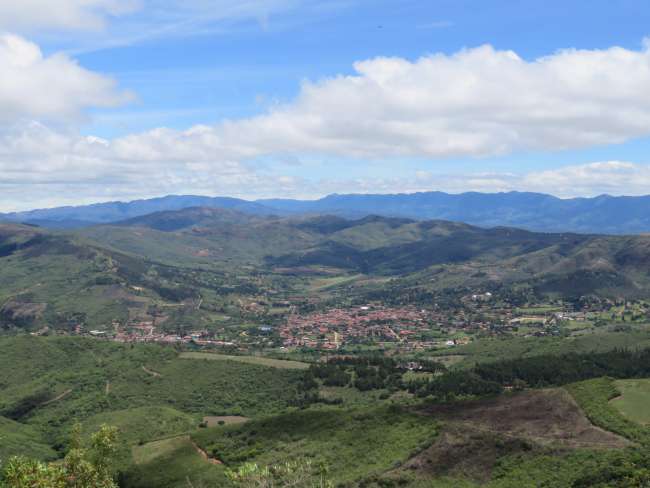
旅行报告玻利维亚
